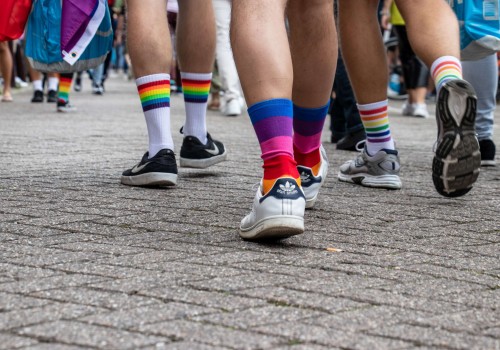6 tips to help your teen feel good about themselves


If adolescence could be summed up in one word, it would probably be change. Adapting to so many changes in such a short period of time can cause a lot of stress for some young people, while others find it easier to handle.
Changes do not occur at the same speed for everyone, so it is impossible to avoid comparing oneself to others and feeling certain insecurities. In a context where social relationships (both real and virtual) take up an enormous amount of space in their lives, how can we help our teenagers develop a healthy self-image?
The perception of the body during adolescence
Body image refers to the perception we have of our appearance (physical aspects, weight, attractiveness/attractiveness, etc.) and how we believe others perceive us. It is constructed from personal values, thoughts and feelings, the socio-cultural context, and the messages conveyed by a person's entourage.
The development of a healthy body image must start at home, from a very young age.
According to a study conducted by the Équilibre group (2015), 45% of 9-year-olds, both boys and girls, are not happy with their body shape. Considering that most of these young people have not yet started puberty, these figures can appear worrying. In addition, 50% of teenagers are dissatisfied with their bodies. When a young person doesn't like their body, they are more likely to experience anxiety, develop negative self-esteem, or engage in unhealthy eating behaviors.
As a parent, you have the power to help your teen feel good about themselves!
Develop a critical eye for social media
Comparing yourself to your friends as a teenager has been and always will be the case. Since the advent of social networks, more and more young people are turning to these platforms as a way to find out how they compare. These retouched, perfect photos may lead to complexes that were previously absent. To get out of this superficiality, ask your teenager if these people represent the men and women around them that they admire or appreciate. Ask them what makes a public figure successful and what motivates people to follow or admire them.
Encourage exploration and discovery
Your teen will definitely try to find their style and the look they like best. You may not like it at times, but it's part of the process of helping them define their identity and to feel beautiful, which are important elements in developing a healthy body image! Welcome your teen's explorations, without judging or criticizing their appearance. For example, if you find that a certain type of clothing doesn't suit them, rather than saying, "It makes you look fat," it would be more appropriate to say, "That piece doesn't enhance your personality!" It is important to be open-minded, and if you want to criticize, avoid doing so, since you do not want to create or reinforce your child's insecurities.
Inspiring your teen's self-acceptance
You have the experience and wealth of knowledge to act as a role model for your teenager. What better way to do this than to share your own experiences with them? An important element in the development of a healthy body image in adolescence is the comments heard and/or received within the family setting. Any negative words that adults associate with their own physical characteristics will color the teen's perception and consequently cause them to develop concerns about their body.
Develop neutral and even positive language about your own body and take stock of the things you like to do and that your body allows you to do. It's a great way to develop a caring view of yourself and invite your child to do the same!
Unconditional acceptance
The best thing you can do is to love and welcome your teen unconditionally through all the changes. Knowing that someone loves, welcomes, understands, and supports us is a fundamental protective factor in adolescence. A young person who feels comfortable in their environment will have a greater capacity to face all the challenges that arise during adolescence.
In short: what can you do to help your child feel good about their body?
- Be open-minded and allow for exploration (welcome changes and offer advice). Be aware of comments related to body image and weight (it is better to be quiet than to criticize, whether it is your child or their friends)
- Maintain a climate of acceptance for body diversity. Value people's personalities over their appearance.
- Talk to your child about the models of beauty portrayed in the media. Be aware of trends on social media that can sometimes be harmful to teens.
- Be a role model: live a healthy lifestyle, be assertive, and resist peer and media pressure. Promote an active lifestyle (moving for fun) and avoid talking about diets or dietary restrictions. Be aware that a home environment where loved ones are overly concerned about weight can have an impact on a youth's behaviours and well-being.
- Increase your own and your child's knowledge of the importance of a healthy body image in the development of self-esteem during adolescence (see the various resources below).
- Consult a professional if necessary (doctor, psychologist, psycho-educator, nutritionist, etc.).
References (in French)
Dove, Aidez votre enfant à se bâtir une image corporelle positive
Promotion de la santé, Pour une image corporelle positive… Parce que nous sommes tous uniques !
Équilibre








